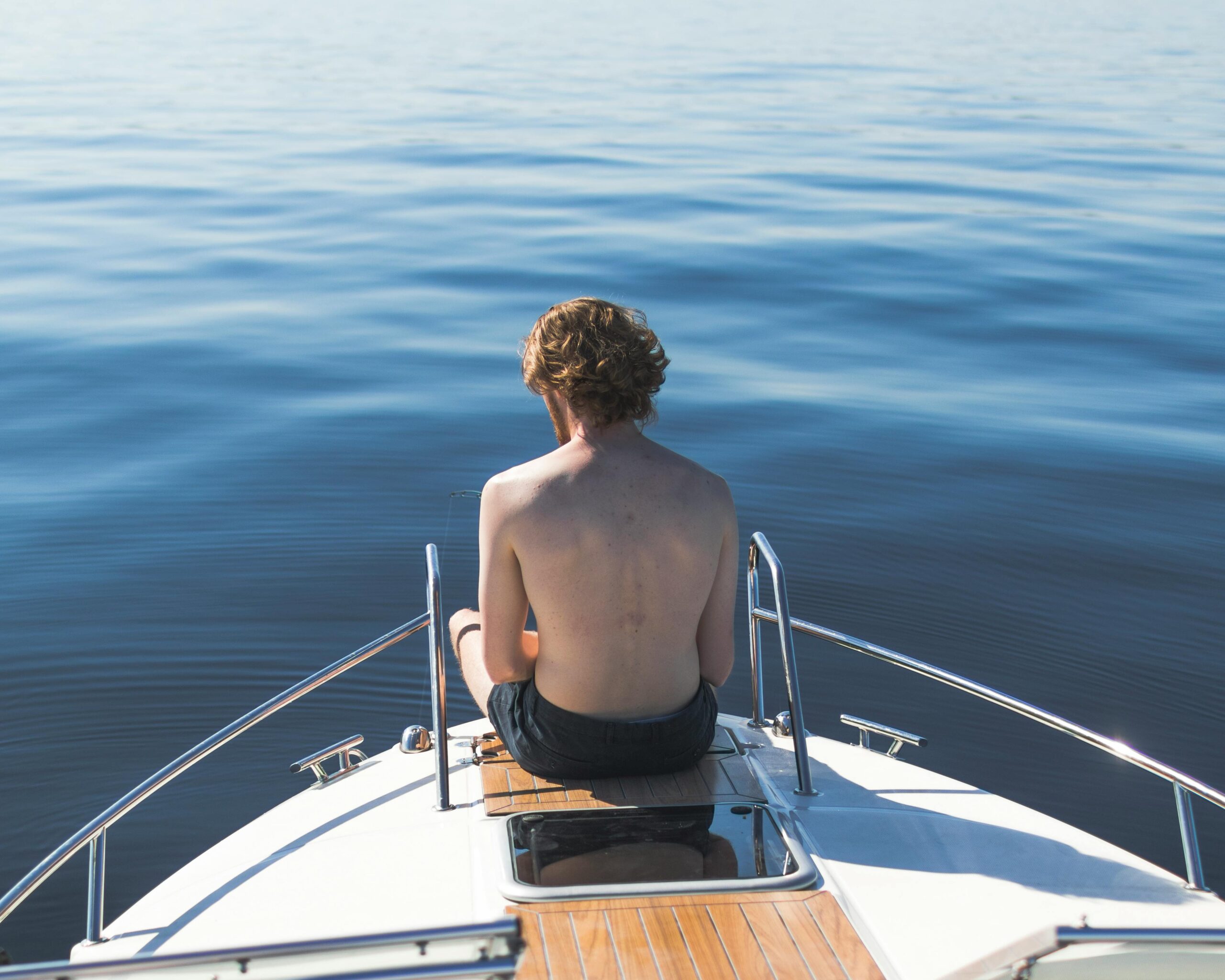Your Guide to Safe and Comfortable Sailing: Adventure Awaits

Welcome aboard! You’re about to embark on an incredible sailing adventure where the wind fills the sails, the sun warms your face, and memories are made on the open water. While we want you to relax and enjoy every moment, a little safety awareness goes a long way toward ensuring everyone has the best possible experience. Let’s make this trip a safe and comfortable sailing excursion.
Think of this as your friendly guide to being an awesome crew member while keeping yourself and everyone else safe and happy. After all, the best sailing trips are the ones where everyone feels comfortable, confident, and ready to embrace the maritime magic!
Follow Crew-Member Instructions
When out on the water, the skipper has top authority over what happens on the boat. They’re not just there to look nautical in their captain’s hat – they’re your safety expert, weather reader, and decision-maker all rolled into one. When the skipper speaks, it’s important to listen up! They have the final say on all matters aboard, from route changes to safety protocols. This isn’t about being bossy; it’s about having one clear voice when quick decisions matter most.
Beyond the skipper, you may have experienced crew members join your trip, who know the boat like the back of their sun-kissed hands. When they give instructions, they’re sharing wisdom earned through countless hours on the water. Also, keep an eye out for those handy placards posted around the boat – they’re like little safety reminders placed exactly where you need them most.
Stay Aboard (It’s Much More Fun Than Swimming Unexpectedly)
The ocean is beautiful, but it’s meant to be admired from the deck, not fallen into! Always maintain three points of contact when moving around the boat, and grab onto something solid and fixed – handrails, stanchions, or other permanent fixtures. Avoid the temptation to sit on the lifelines or lean too far over the edge for that perfect photo. The boat will heel and move in ways that might surprise you, so always be prepared for the unexpected motion.
Wisdom for the Galley
Cooking at sea is an art form that requires respect for the environment. When using the stove or oven, always ensure proper ventilation, check that the flame doesn’t go out, keep a close eye on your cooking, and never leave the galley unattended with appliances running. The motion of the ocean can turn a simple meal prep into a challenging dance, so take your time and stay alert. Always turn off gas valves when finished cooking.
Fresh Air Keeps Everyone Happy
While the sea breeze is nature’s air freshener, smoking can quickly overwhelm the confined spaces of a boat. If you smoke, please do so only on deck in designated areas, and never in cabins, heads (that’s boat-speak for bathrooms), or the galley. Be mindful of wind direction so smoke doesn’t blow into hatches or onto other passengers.
Sun Protection is Non-Negotiable
The sun’s reflection off the water is like nature’s amplifier for UV rays. What might feel like a gentle warming can quickly become a painful burn that ruins your trip. Slather on that sunscreen generously and reapply frequently, especially after swimming or toweling off. Don’t forget often-missed spots like the tops of your feet, ears, and the back of your neck.
Teamwork Makes the Dream Work
Sailing is inherently collaborative. Embrace the communal spirit by being flexible, patient, and respectful of others’ space and needs. Everyone comes from different backgrounds and experience levels, so be ready to help others learn while staying open to learning yourself. The best sailing crews are those where everyone feels valued and included.
Create the Perfect Vibe
You’re not just a passenger – you’re part of creating the magic! Bring positive energy, be willing to pitch in with daily tasks, and contribute to the onboard community. Whether it’s helping with meal prep, keeping common areas tidy, or simply sharing a good story during sunset drinks, your attitude helps shape everyone’s experience.
Know Your Limits (Especially the Liquid Kind)
While sunset cocktails and celebratory drinks are part of the sailing tradition, remember that alcohol and boats require extra caution. The motion of the boat can intensify alcohol’s effects, and you’ll need your wits about you at all times. Pace yourself, stay hydrated with water, and never let alcohol impair your judgment or balance.
Life Jackets: Your Personal Safety Net
Don’t feel embarrassed about wearing a life jacket – experienced sailors know they’re smart safety tools, not signs of weakness. If you feel more comfortable wearing one, especially during rough weather, at night, or when you’re on deck during sail changes, go for it! Your safety and peace of mind are always the priority.
Hands Off the Rigging (Unless Invited)
Those ropes (called lines in sailing speak) and mechanical devices such as clutches that control the sails are the boat’s skeleton and muscles. They’re under tremendous load and precisely adjusted by the crew. Unless specifically instructed otherwise, admire them from a distance and resist the urge to touch, adjust, or lean against them. The crew will be happy to explain how everything works during quieter moments and invite you to “learn the ropes” if you wish.
Medical Readiness and Physical Wellbeing
Sailing is an active adventure that can place unique demands on your body. Since we may be hours away from shore-based medical facilities, it’s essential that all passengers and crew members are physically prepared for a week at sea. This isn’t about excluding anyone – it’s about ensuring everyone can fully participate safely and enjoyably.
Physical Fitness Requirements: A sailing week involves physical activities like moving around the boat on uneven and moving surfaces, climbing in and out of dinghies, handling lines, and potentially assisting with emergency procedures. You should be comfortable carrying at least 25 kg (about 55 pounds) – think of it as handling your luggage plus helping with boat equipment when needed.
Pre-Trip Health Assessment: If you have any ongoing medical conditions, take regular medications, or have concerns about your fitness level, we strongly recommend consulting with your doctor before booking. They can help assess whether a week at sea aligns with your current health status and may suggest preparations to optimize your sailing experience.
Age and Health Considerations: While sailing welcomes adventurers of all backgrounds, the physical demands and remote nature of our trips mean we focus on crew members who are in good cardiovascular health. If you’re over 50, we particularly encourage a conversation with your physician about the physical activities involved and your readiness for extended time away from immediate medical care. This consultation helps ensure you can fully embrace the adventure while maintaining your wellbeing.
Medical Information Sharing: Please inform us of any medical conditions, allergies, or medications that might be relevant during the trip. This information helps our crew prepare appropriately and ensures we can respond effectively if needed.
Remember, this preparation isn’t about creating barriers – it’s about setting everyone up for the most enjoyable and worry-free sailing experience possible!
Additional Safety Considerations
Weather Awareness: Pay attention to weather briefings and any changes in conditions. If the crew asks you to go below or change your position, do so promptly.
Hydration: Drink plenty of water, especially in sunny conditions. The combination of sun, wind, and salt air can dehydrate you faster than you might expect.
Secure Your Belongings: Keep personal items secured so they don’t become projectiles or go overboard when the boat moves unexpectedly.
Emergency Procedures: Familiarize yourself with the location of safety equipment like life rings, flares, and the radio. The crew will start the trip with a thorough safety briefing and will be happy to review any questions or concerns you have to ensure you feel safe and know the safety procedures.
Seasickness Prevention: If you’re prone to motion sickness, take preventive measures early. Stay hydrated, get fresh air, and let the crew know right away so they can take action to help you.
Respect Marine Life: We’re visitors in the ocean’s home. Don’t throw anything overboard, avoid disturbing wildlife, and follow all local environmental guidelines.
Ready to Set Sail!
With these guidelines in mind, you’re all set to embrace the incredible experience of sailing. Remember, safety isn’t about limiting fun – it’s about ensuring everyone can enjoy the adventure to the fullest. The ocean offers some of life’s most spectacular moments, and with a little awareness and mutual respect, you’ll create memories that will last a lifetime.
Welcome aboard, and may you have fair winds and following seas!





